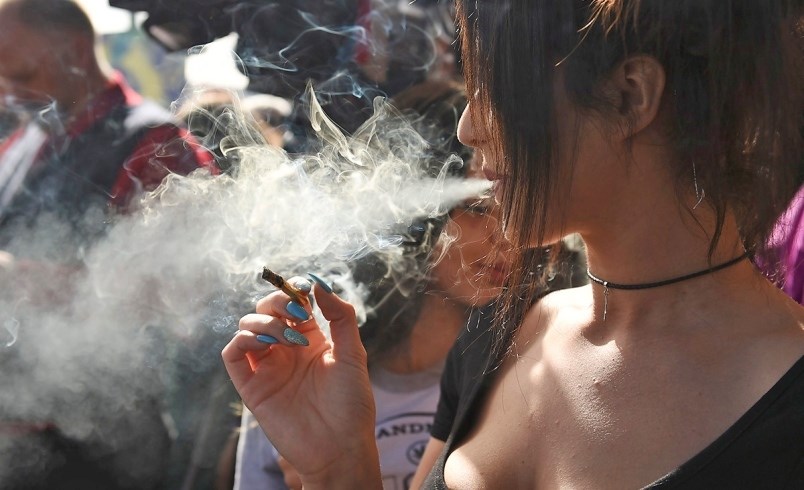As Canada is poised to legalize the recreational use of marijuana, readers might wonder how schools will handle the change. Will kids be legally toking up on school grounds? Will skunky smells be wafting down the halls?
Definitely not.
First off, it’s important to note that when the recreational use of marijuana is legalized, probably later this year, it will still be illegal for minors to use or possess pot. In that regard, things won’t change in schools.
Secondly, even with a medical marijuana prescription, kids won’t be allowed to smoke on school grounds. Smoking is prohibited on school grounds and it will continue to be prohibited, the Â鶹´«Ă˝Ół»School Board’s associate superintended Jody Langlois said in a statement. Â
Medical marijuana has been legal in Canada since the beginning of this century.
“If medical marijuana was prescribed in a way that necessitated it being administered during the school day, as with all prescribed medications, VSB’s Student Support Services would develop, with families and medical professionals, Individualized Education Plans to determine the best course of action to meet the student’s needs,” Langlois said.Â
When medically needed during school, support staff or administrators sometimes do give students prescription medications, the VSB’s policy on administering medicines says. Usually, those staff will have been given specific training about the medications and how to administer them. So, it is theoretically possible that school staff could be responsible for administering medical marijuana, if it is prescribed and required during school hours.
Earlier this month, the provincial government about how it will handle the upcoming legalization of recreational pot use. In general, recreational pot-smoking will be allowed in public spaces where tobacco smoking and vaping are permitted, with the exception of areas frequented by children like beaches, parks and playgrounds, where it won’t be allowed. Pot smoking will not be allowed in cars, for passengers or drivers.
If students are caught using marijuana for recreational purposes at a school event after it is legalized in Canada, the same rules as now will apply because recreational marijuana will still be illegal for minors.
The VSB code of conduct says students are responsible for “not attending school or school functions while in possession of or while under the influence of any intoxicating, banned or controlled substances; (and)…not smoking any substance, nor use vaporizers or e-cigarettes on school and other district property.”
If those rules are broken, the school deals with it, according to policies and procedures that are in place, Langlois said.
Â鶹´«Ă˝Ół»schools try to do proactive drug and alcohol prevention through their SACY (School Age Children and Youth) program, which aims to “enhance the prevention and brief intervention infrastructure in VSB schools and surrounding community to prevent substance use, delay substance use and reduce substance use related problems.”
The program is a partnership between the VSB and Â鶹´«Ă˝Ół»Coastal Health, working with the City of Vancouver, the Â鶹´«Ă˝Ół»Police Department, the University of British Columbia and the Centre for Addictions Research of B.C.
Questionable savings
In other VSB news, the district has posted an update to its financial situation for this school year. It shows $1.1 million in savings in the teacher on call budget and $6.1 million in savings from hiring less experienced (and therefore less expensive) teachers. Parents and teachers have been complaining all year that when a teacher is sick, they are not being replaced. What happens instead is that a non-enrolling teacher, such as a librarian or a resource teacher, is pulled in to cover the class instead. But that means the children don’t get their library time, or special needs students don’t get the resource help they need. The $1.1-million budget savings is the direct result of not replacing teachers when they are away sick. The VSB’s documents say it’s due to the shortage of teachers on call, but others might question whether the district prefers to have fewer teachers on call so that it saves money.
District administration is up by $2 million, due to staff turnover, the temporary superintendent, increased legal costs and new software. But the cost of benefits fell by $1.1 million, due to the decrease in Medical Services Plan premiums.
The public will find out what’s in store for the 2018-19 school year on April 17, when the district releases its budget. It’s always an interesting process at VSB and this year promises to be no different.
Tracy Sherlock writes about education and social issues. She can be reached at [email protected].



